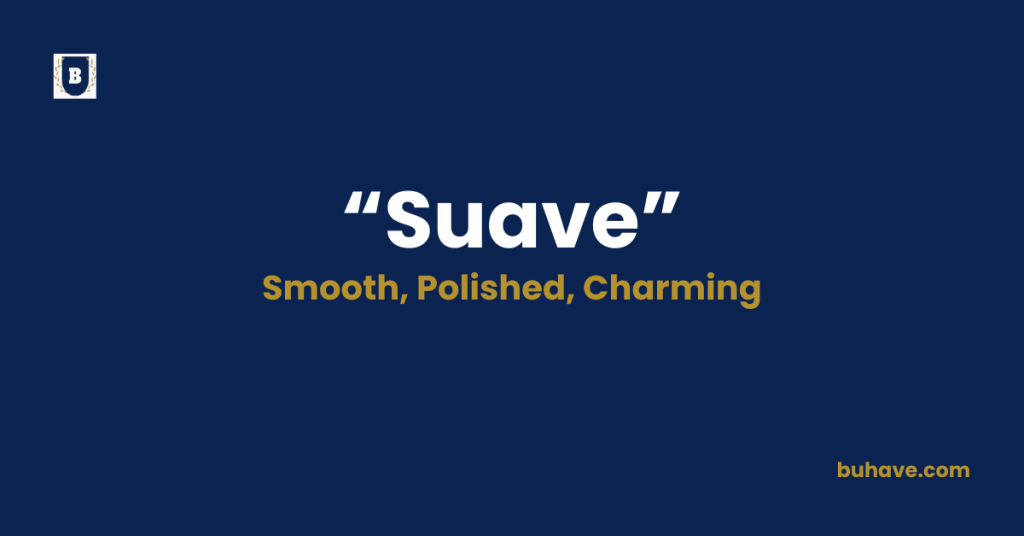The word ‘Suave’ (Adjective) describes someone who is charming, smooth, and effortlessly gracious. In this guide, you’ll learn the full definition, synonyms, antonyms, etymology, and real-life examples of how to use ‘Suave’ correctly in sentences.
Suave Explained in Depth
A complete and detailed guide to the word Suave, including meaning, definition, examples, etymology, synonyms, and antonyms.
Meanings of Suave
Suave means smooth, charming, and socially graceful. It’s often used to describe people who are sophisticated, polite, and confident someone who carries themselves with style and an easygoing charm. A suave person often makes a good impression and is skilled at handling social situations smoothly.
Definition
Suave is that refers to a person who is charming, confident, and effortlessly gracious, often in a way that is polished and sophisticated. It can also describe actions or manners that are smooth and elegant, giving off an air of sophistication and refinement.
Etymology
- The word suave comes from the Latin word “suavis,” meaning “sweet” or “agreeable.”
- It was adopted into Middle French as “suave,” meaning “pleasant” or “delightful.”
- In English, it retains the sense of smoothness and charm in both personality and behavior.
Example Sentences
- He was known for his suave manner and impeccable style at social events.
- Her suave demeanor made everyone feel at ease, even in tense situations.
- With his suave confidence, he navigated the negotiations skillfully and left a lasting impression.
Suave Synonyms
- Charming
- Sophisticated
- Debonair
- Polished
- Elegant
- Graceful
- Urbane
- Refined
- Genteel
- Polite
Suave Antonyms
- Awkward
- Clumsy
- Rough
- Unrefined
- Unpolished
- Inelegant
- Rude
- Brash
- Coarse
- Crude
FAQs about Suave
Here are some frequently asked questions (FAQs) about the word “Suave”
1. What does “suave” mean?
Suave means smooth, charming, and socially polished—someone who is effortlessly graceful and sophisticated in social situations.
2. Is “suave” always positive?
Generally, yes. Suave usually has a positive tone, describing someone who is charming and elegant. However, sometimes it can carry a slightly negative connotation if it implies insincerity or manipulation, depending on the context.
3. Can “suave” apply to women?
Yes, although suave is often associated with men, it can certainly describe women who are charming, elegant, and graceful in their interactions.
4. Is “suave” formal or informal?
“Suave” is more formal than casual, often used in written or polite conversation to describe sophisticated charm.






